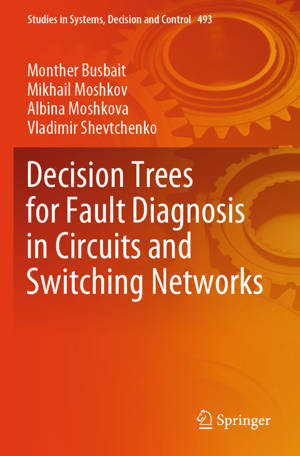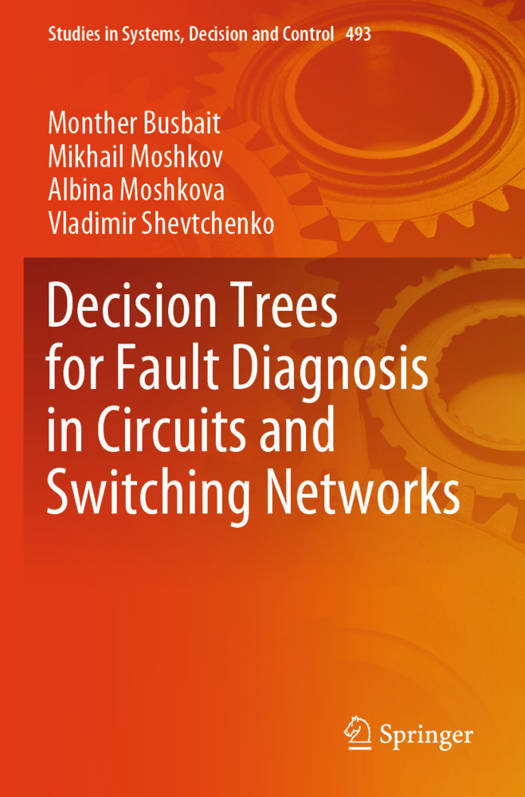
- Retrait gratuit dans votre magasin Club
- 7.000.000 titres dans notre catalogue
- Payer en toute sécurité
- Toujours un magasin près de chez vous
- Retrait gratuit dans votre magasin Club
- 7.000.0000 titres dans notre catalogue
- Payer en toute sécurité
- Toujours un magasin près de chez vous
Decision Trees for Fault Diagnosis in Circuits and Switching Networks
Monther Busbait, Mikhail Moshkov, Albina Moshkova, Vladimir ShevtchenkoDescription
In this book, we study decision trees for fault diagnosis in circuits and switching networks, which are among the most fundamental models for computing Boolean functions. We consider two main cases: when the scheme (circuit or switching network) has the same mode of operation for both calculation and diagnostics, and when the scheme has two modes of operation--normal for calculation and special for diagnostics. In the former case, we get mostly negative results, including superpolynomial lower bounds on the minimum depth of diagnostic decision trees depending on scheme complexity and the NP-hardness of construction diagnostic decision trees. In the latter case, we describe classes of schemes and types of faults for which decision trees can be effectively used to diagnose schemes, when they are transformed into so-called iteration-free schemes.
The tools and results discussed in this book help to understand both the possibilities and challenges of using decision trees to diagnosefaults in various schemes. The book is useful to specialists both in the field of theoretical and technical diagnostics.It can also be used for the creation of courses for graduate students.Spécifications
Parties prenantes
- Auteur(s) :
- Editeur:
Contenu
- Nombre de pages :
- 130
- Langue:
- Anglais
- Collection :
- Tome:
- n° 493
Caractéristiques
- EAN:
- 9783031390333
- Date de parution :
- 12-08-24
- Format:
- Livre broché
- Format numérique:
- Trade paperback (VS)
- Dimensions :
- 155 mm x 235 mm
- Poids :
- 230 g

Les avis
Nous publions uniquement les avis qui respectent les conditions requises. Consultez nos conditions pour les avis.






